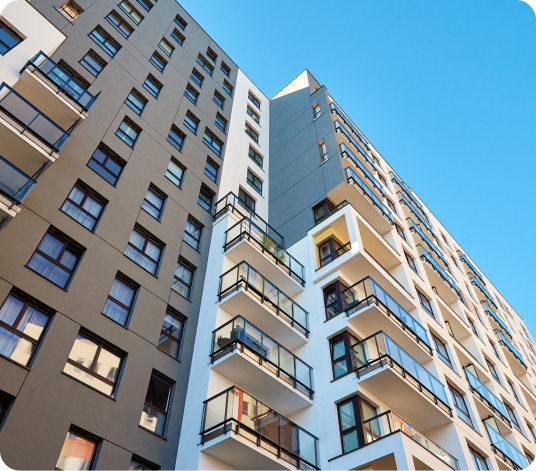Rental homes can generate additional income while also increasing in value. If you are considering buying an investment property in Utah but do not have money to make an outright purchase, you might need to get a mortgage for your investment property. Because these mortgages are considered riskier by lenders than mortgages for primary homes, lenders have more stringent requirements for rental property mortgages. Here’s some information from City Creek Mortgage about rental investment property loans, different options, and the criteria lenders typically use to determine whether to approve them.

Types of Investment Properties
Investment properties include different types of real estate an investor might purchase to make extra income. While this can include commercial properties, this article will focus on residential properties used to generate income. The types of residential investment properties include the following:
- Single-family homes
- Condominiums
- Cooperatives
- Multifamily homes
- Manufactured homes
The type of property you can purchase with a rental investment property mortgage will depend on the particular type of mortgage you want to get. Several mortgage types require homebuyers to live in the property as their primary residence, making them unavailable for certain investment property types. There are also some key differences between mortgages to purchase rental properties vs. those used to purchase primary residences as discussed below.
Differences Between Primary Residence Mortgages and Rental Property Loans
While investment rental property mortgages in Utah share many similarities to mortgages for primary residences, there are some key differences as discussed below.
Higher Interest Rates
Rental property mortgages are considered riskier by lenders than mortgages for primary homes. This is because when a homeowner who also owns a rental property runs into financial difficulty, they are more likely to focus on paying the mortgage on their primary residence than on the rental property. The risk of default is also higher because of the potential of the property not generating enough income to cover the mortgage payments, leading to default.
Because of the increased risk associated with investment rental property loans, you should expect to pay higher interest rates that can range from a percentage point of 0.5 to 0.75 higher than the prevailing interest rates for primary residence mortgages.
Higher Minimum Down Payment Requirement
Lenders typically require higher minimum down payments for rental investment property loans than they do for traditional primary residential mortgages. However, if you plan to purchase a multifamily home of up to four units and live in one unit as your primary residence, you might be able to get a mortgage backed by the Federal Housing Administration (FHA) or the Department of Veterans Affairs (VA) with a down payment of as low as 3.5%.
However, if you don’t intend to buy a small multi-family property and live in a unit, your down payment will be much higher. Conventional mortgage guidelines allow down payments as low as 15% for rental properties, but most lenders will require you to put down a minimum of 20% to 25%.
Another related difference with a conventional mortgage is that your down payment for a rental property must be composed completely of your own money. By contrast, you can use gifts to make down payments on a home you intend to treat as your primary residence. For example, gifts can be used as a part of your down payment, for small, multi family homes you purchase with VA- or FHA-backed loans that you intend to live in a unit.
Higher Credit Score Requirements
Lenders typically have higher credit score requirements for rental investment property mortgages than they require for traditional mortgages. While you can purchase a primary home with a credit score of as low as 580 for some mortgage types, you should anticipate needing a minimum credit score of at least 640 to get an investment property loan. However, many lenders require that people who are purchasing multifamily properties have credit scores of at least 700. If you want the lowest interest rates, you’ll likely need to have a credit score of at least 740.
Cash Reserve Requirements
Lenders often require borrowers to have cash reserves to cover the monthly mortgage payments for up to six months, depending on the number of properties the borrower owns. This means that if you don’t have cash reserves saved up in addition to money for a down payment, you may not be able to buy right now. You may need to build your savings before applying for an investment property mortgage.
Using Anticipated Rental Income to Qualify
You might be able to count the future rent from the property you are purchasing to qualify for the mortgage. The lender might want to see records of the rental income the property has generated in the past or an appraisal that includes an analysis of rental properties in the area and what they rent for on average. If you’re purchasing a small multifamily home with an FHA or VA-backed mortgage, you can figure in the rent amounts from the other units you will rent out in your qualifying income.

Mortgage Types for Residential Rental Investment Properties
Buyers will encounter similar mortgage types for investment properties to primary residential properties, including conventional mortgages with fixed or adjustable rates and repayment terms ranging from 10 to 30 years. However, you won’t be able to buy most types of rental properties with a federally-backed mortgage, including FHA mortgages, VA mortgages, or USDA mortgages. The sole exception is a mortgage for a multifamily property of up to four units if you intend to live in one of the units as your primary residence. Here’s a look at the various rental property mortgage loan options.
Conventional Rental Investment Property Mortgages
You can purchase an investment property with a conventional mortgage without living in it as your primary residence. You’ll need to meet the more stringent requirements that were previously described to qualify, however, including a higher down payment, higher credit score, cash reserves, and others.
FHA Loans and Investment Properties
You can’t buy an investment property with an FHA loan unless you intend to live in it as your primary residence. However, if you want to purchase a multi-family property such as a duplex or four-apartment building and intend to treat one of the units as your primary home, you can buy it with an FHA-backed mortgage. You’ll need to live in one of the units for a minimum of one year. You’ll also be allowed to count the rent you’ll collect from the other units to qualify for your mortgage.
VA Loans and Investment Properties
Like the FHA, the VA requires borrowers to live in the homes they buy as their primary residences. However, the VA has a multifamily loan program for eligible military service members through which they can purchase a multifamily property of up to seven units but must live in one of them as their primary residence. This program is called a VA joint loan. Eligible military service members can get this type of mortgage without a required down payment.
Alternative Lending Options
If you don’t qualify for an FHA mortgage, VA mortgage, or a conventional mortgage to purchase investment properties in Utah, there are a few alternatives. For example, you might be able to get a nonqualified (non-QM) mortgage based on the rental income from the property you’re purchasing. This type of mortgage will have a higher interest rate and require a larger down payment than the other types of mortgages.
Some people buy investment properties by taking out home equity loans or home equity lines of credit (HELOCs). This involves borrowing against the equity you’ve built in your primary home to purchase an investment property. You should exercise caution before doing this. If you can’t afford the payments on your HELOC or home equity loan, your primary residence could be at risk.
Some people choose to get cash-out refinance mortgages on their existing homes and use the cash to purchase an investment property. This will mean you will use up a large percentage of the equity in your home to buy an investment property. However, using the cash to buy a rental home will not place your primary home at risk since the rental property won’t be secured against the equity in your home.
Contact City Creek Mortgage
If you dream of buying a rental property to add to your income but will need financing, you should speak to a mortgage expert at City Creek Mortgage to learn about your options. We can talk about the type of property you are interested in purchasing, help you review various mortgage programs, and explain the pros and cons of each. Call us today to request an appointment at (801) 501-7950.



